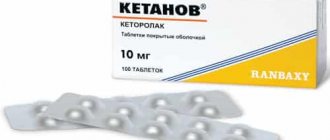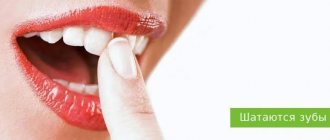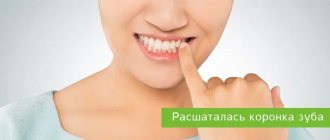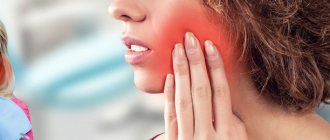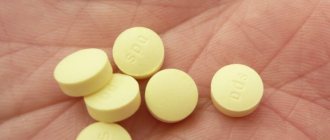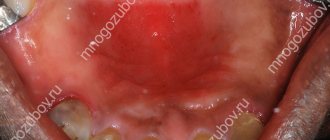Can toothache be related to a person’s psycho-emotional state? The article describes how emotional experiences and pain in the teeth (as well as other organs) are related to each other. You will learn about how a person’s character indirectly affects the condition of his jaw and what are the metaphysical causes of toothache.
People have long associated their illnesses with various external factors that are not always dependent on them. It was once believed that a curse pronounced out loud could cause a terrible illness (or even kill someone), and among the pagans, disloyalty to God promised misfortune and trouble to the “apostate” and his family.
Today, little has changed - people are still susceptible to the influence of psychosomatic factors. Our character and worldview significantly affect our overall well-being. Problems of a psychological nature can cause tangible physical symptoms, such as sudden malaise, weakness, pain in the head, heart and... even teeth.
Toothache largely depends on a person’s mental health
Bruxism or teeth grinding - its causes and consequences, how it can be cured
Due to stressful situations, people often clench their teeth tightly, causing the chewing muscles to become hypertonic.
Overstrain of the facial muscles can cause frequent headaches and chronic fatigue - these symptoms are familiar to many. They are the secondary signs of bruxism.
- Bruxism is the grinding of teeth during sleep, which occurs due to hypertonicity of the masticatory muscles.
Bruxism causes excessive wear of teeth and overloads the gums, which are what hold the teeth in the bone.
The cause of night grinding of teeth is not only stress and nervousness, but also an incorrect bite, which is corrected by an orthodontist.
- In order for the bite to form correctly, you need to visit an orthodontist from early childhood to correct defects. In childhood, bite correction occurs faster and easier than in adults.
But adults with malocclusion should not despair either. Yes, to achieve excellent results, you will have to spend more time and effort, but a beautiful smile and health are worth it.
- People suffering from bruxism may also need the help of a dentist to restore worn-out tooth surfaces and eliminate cracks and chips.
Teeth can be restored using crowns, implants or fillings made of polymer materials. Our specialists are always ready to advise you on the optimal solution.
Features of the treatment of trigeminal neuralgia
Toothache with neuralgia is a signal to immediately seek help from a neurologist. Inflammation of the trigeminal nerve is a serious problem that requires qualified assistance. Treatment of neuralgia must be comprehensive to achieve the best results in the fight against the disease.
In the process of treating neuralgia, it is important to correctly determine the cause and type of inflammation in order to be able to prescribe the appropriate treatment. When secondary neuralgia develops, before treating the main problem, it is necessary to eliminate the disease that was the cause.
To eliminate trigeminal neuralgia, specialists use therapeutic and surgical treatment methods. Most often, drug treatment is used in the form of drugs with an anticonvulsant effect, antihistamines, and vitamin therapy. However, if the use of medications is ineffective, it becomes necessary to act on the nerve through surgery.
Stress eating and tooth decay
When we are constantly under stress, a bad mood becomes our inseparable companion and, of course, we want to get rid of it quickly.
It so happens that sweets are the easiest way to get positive emotions super quickly. And many actively use this method during times of stress, sometimes forgetting about proper oral hygiene.
- A favorite chocolate bar, eaten before bed, lifts your mood, but also inevitably triggers the proliferation of bacteria that cause caries. Don't forget to brush your teeth before going to bed.
Of course, it’s unlikely that anything bad will happen because of one chocolate bar, but systematic abuse of sweets can gradually destroy even the strongest and healthiest teeth.
And only a dentist can see the early symptoms of caries and eliminate them with the least loss to your teeth.
- This is why we insist on regular dental checkups every six months. They will help prevent the development of diseases and keep your teeth healthy for many years!
Visit the dentist once every six months and remember, with our help, your smile will be flawless, which means there will be fewer reasons for grief and stress in your life.
Where do dental problems come from?
Many of us have experienced periods in our lives when, with the same oral care, our teeth felt worse and were prone to pain and decay. Psychologists blame this on the unstable human psyche, and parapsychologists even operate with such a concept as “ metaphysical factors ” of toothaches.
Let us explain this in clear language. It is known that teeth are the first organ involved in the digestive process. They are engaged in grinding food to a state acceptable to the stomach. On the other hand, which organ is the first to “digest” intellectual and spiritual food? That's right, the brain. Just as any solid food can make chewing difficult or even damage a tooth, life circumstances and unforeseen problems become a mental test. Indecisive, weak-spirited people cope worse than others with the troubles that befall them, and sharp pain in the teeth can be one of the manifestations of internal troubles.
When a person is afraid of falling into a trap, feels powerless and cannot fight back the offender, toothache indicates an inability to stand up for oneself, “bite one’s teeth” into enemies and fight for one’s happiness. If teeth are destroyed from wear and tear, then this is rather a sign of a bad environment that takes advantage of a person and steals his vital energy. Silently waiting for changes in the hope of better days (without taking active steps on your part) dooms a person to stagnation.
Complications after recovery
The more severe the infectious disease, the higher the chance of complications after recovery. Thus, approximately a third of those who have recovered experience complications from the central nervous system and the psyche.
Many survivors talk about fatigue and malaise, difficulty finding words, remembering, and decreased concentration. Some describe their condition as a kind of fog after COVID-19. Researchers report that one in three people regularly experience headaches and dizziness, loss of smell and taste, and muscle weakness.
“Many negative psychological reactions appear after recovery,” Olga Markina shares her experience. “Sometimes symptoms do not appear immediately, but several months after recovery. Patients experience malaise, drowsiness, and decreased stamina. Many people experience anxiety and fear of re-infection, even to the point of hypochondria and phobia.”
A professor of psychiatry at the University of Maryland reports that he believes that in about 30-50% of those who recover, there is an increased risk of future mental health problems, such as depression and anxiety. Also, about half of people who had symptoms of coronavirus suffer from insomnia and depressed mood.
Recent studies say that one in ten coronavirus survivors develop post-traumatic stress disorder, and a third develop depression and anxiety disorders. In addition, 54% of people develop chronic fatigue syndrome within three months of infection.
A new but not yet peer-reviewed study reports that people who recover from coronavirus are more likely to experience intracranial hemorrhage, ischemic stroke, parkinsonism, Guillain-Barré syndrome, dementia and insomnia than those who recover from other common infections, including influenza.
Types of toothache and relief strategies
We will provide a list of warning signs that, due to the presence of nerves, can let us know that there are problems with our teeth and we should not hesitate to go to the dentist.
Slight sensitivity, unpleasant sensations close to pain
Symptom: Sensitivity to hot or cold foods and drinks.
This may be caused by: incipient caries on one of the teeth, the use of a hard toothbrush and whitening pastes, or a recent teeth whitening procedure. In addition, this may also be an individual feature determined genetically.
What to do: If your tooth enamel is too sensitive, keep it clean and prevent stubborn plaque and tartar from forming. Use an extra soft toothbrush, but no more than twice a day. If more frequent hygiene is required, then use soft rinses. Also try using a fluoride toothpaste designed for sensitive teeth. You can use the remineralizing gel as a compress, rubbing it into the surface of the tooth. If after all these steps the sensitivity does not go away, make an appointment at the dental clinic.
Types of fungi
Candida are representatives of normal microflora. Several types of candida are known, which can also be pathogens. Fungal gastroenteritis is observed in severely weakened children and the elderly, as well as people of any age with significant immune deficiency of various origins. They are characterized by a gradual onset, bloating, infrequent loose foamy stools, rumbling and various soreness, nausea, vomiting, and cramping abdominal pain. In very severe cases candidasepsis may occur. Secondary infection easily develops on the affected surfaces. The disease is getting worse. Such a course of candidiasis is possible only in a dirty intestine, with blockages from a mixed meat and dairy diet in the body with a high deficiency of silicon, which is capable of excreting candida with feces. In practice, 90% of those consulted suffer from candidiasis.
Cryptococci - cause subacute or chronic deep mycosis. Most often (70%) this disease occurs in people with a mixed diet who have overloaded the enzymatic apparatus of the stomach. In such cases, even baker's yeast can cause cryptoccosis due to the infinitely large expenditure of acid to neutralize alkaline enzymes coming from the mouth with carbohydrate foods that were eaten along with protein. To get rid of this disease, it is necessary to remove the root cause of the disease - overload of the acid-forming gastric mucosal bioapparatus, use only separate nutrition, cleanse the intestines, and only then will antimycotic treatment be successful.
Penicildia - cause deep mycoses, caused by a variety of green molds that can affect the skin, mucous membranes, external auditory canal, and internal organs. Penicilliums occur after the use of antibiotics. Nocardia asteroides are aerobic, immobile formations that occupy an intermediate state between fungi and bacteria. Most are saprophytes, but can cause diseases in humans and animals. Nocardiosis can be expressed as mycetoma -. a tumor in the lungs consisting of a dense plexus of mold.
A close relative of Nocardia asteroides is Actinomycetes isrielii. They cause severe mycotic lesions of the cervicofacial region, chest and abdominal cavities - granulomas. This fungus is most often found in people living in areas of high radiation, as well as working in hazardous chemical production.
Mucor fungi cause a disease very similar to tuberculosis - mucophomycosis.
Aspergillus is a fungus that includes many species. Some of them are pathogenic. They are capable of deeply affecting tissues. They release toxins and give rise to malignant formations.
Geotrichosis is a disease caused by fungi that attack the mucous membranes. They accompany diseases - otitis media, sinusitis.
Trichophyton is a fungus that causes diseases of the skin, hair, and nails. It is rare to find a person who is not contaminated with trichophyton.
Trichophytis - causes ringworm disease. Trichophytosis can be superficial or chronic. Superficial trichophytosis is characterized by the appearance of erymatous peeling on the scalp. The fungus penetrates the hair, destroys it, the hair breaks, which is why the name “ringworm” is associated.
Epidermophyton floccosum is the causative agent of lichen nigricans. This disease manifests itself as slightly scaly dark brown or black spots, most pronounced on the extremities. Penetration of the fungus into the skin can be deep, and upon recovery, when the black spots disappear, the skin regains its ability to pigment (change color from exposure to the sun) for 2-3 years. At this time, non-tanning spots from ringworm black appear on the arms and legs. The disease recedes with the usual antimycotic treatment with celandine juice.
Microsporiums are fungi that cause the disease microsporia, which affects the skin, hair and nails. Exposure to all kinds of creams, ointments, powders and rubs either does not give a healing effect, or gives a very short-term improvement in health. To completely get rid of microsporia, it is necessary to take antimycotic treatment from inside the body.
Mycosis fungoides - causes the disease mycosis fungoides - a malignant tumor lesion of the lymph vessels, the fungus initially settles on the skin, and then colonizes the lymphatic system.
Mycoplasmas Fluor - cause inflammatory processes mainly in the respiratory organs and in the genitourinary system.
Sporothrix is a fungus that attacks muscles, bones, and internal organs.
All fungi produce poisons that cause a wide variety of allergic reactions. Toxins from aspergilus fungi have a toxic effect on the liver.
Yeast species: Candida, Candida albicans, Cryptococcus, Trichosporum, Saccharomyces.
Molds: trichophyton, microsporium, epidermiphyton, aspergillus, mycosis.

